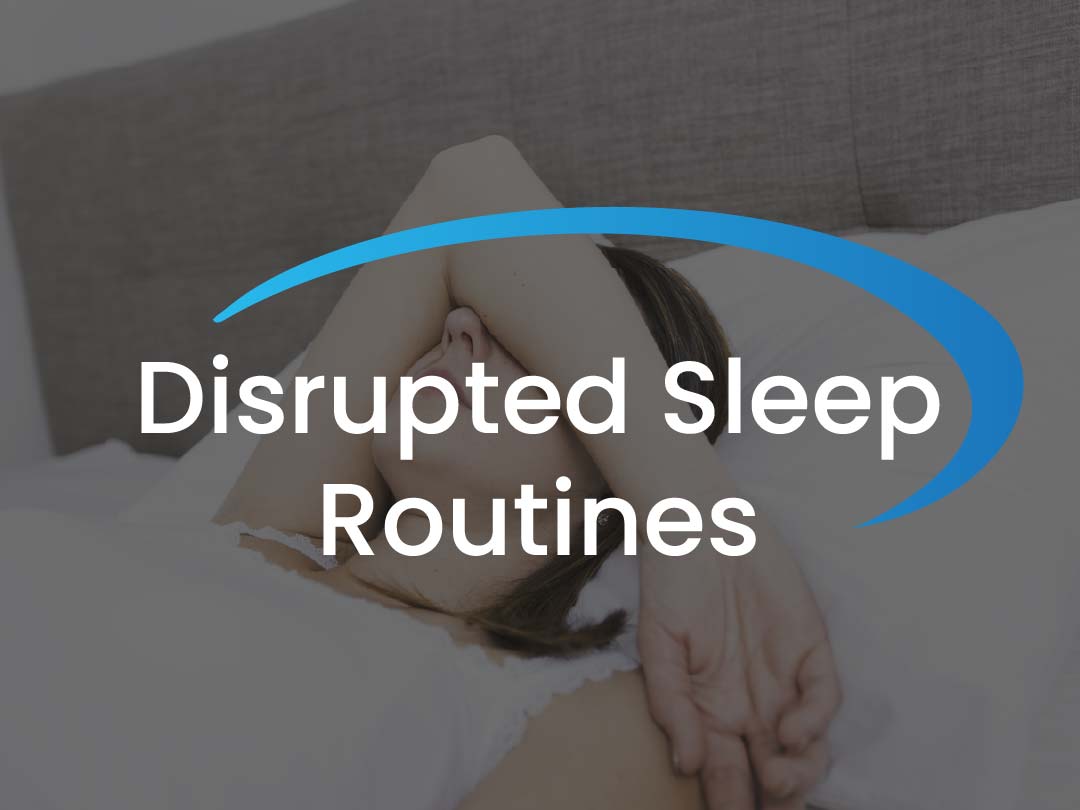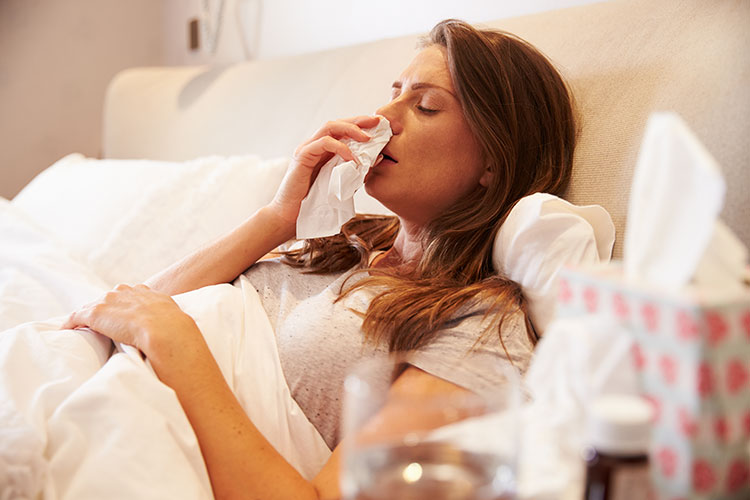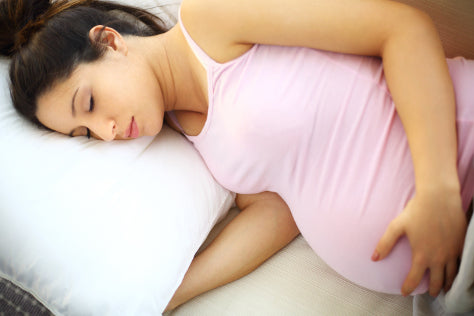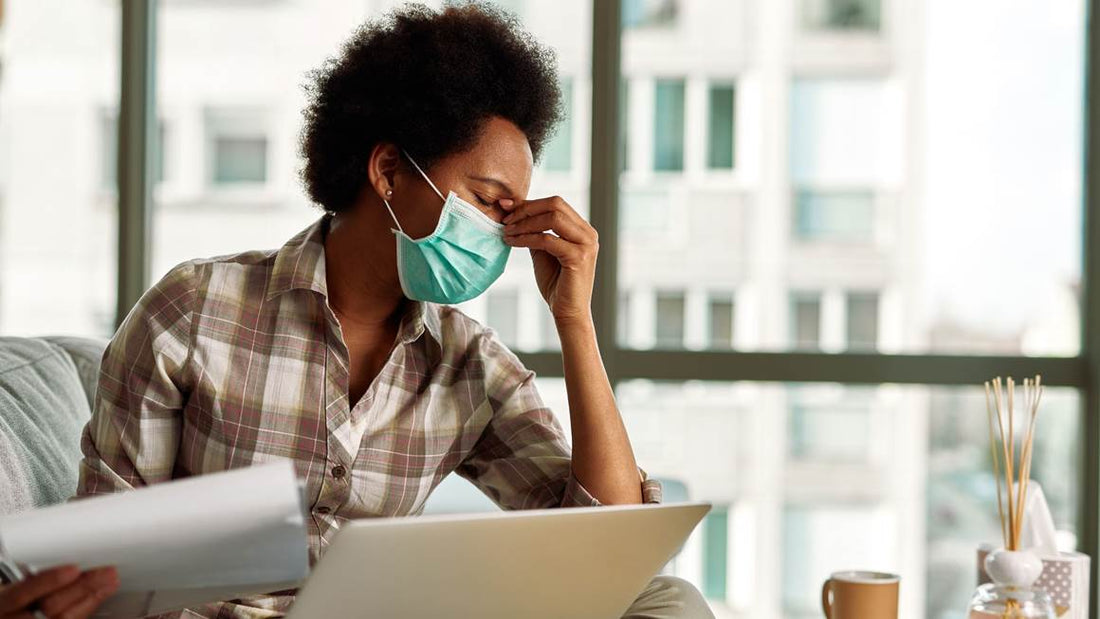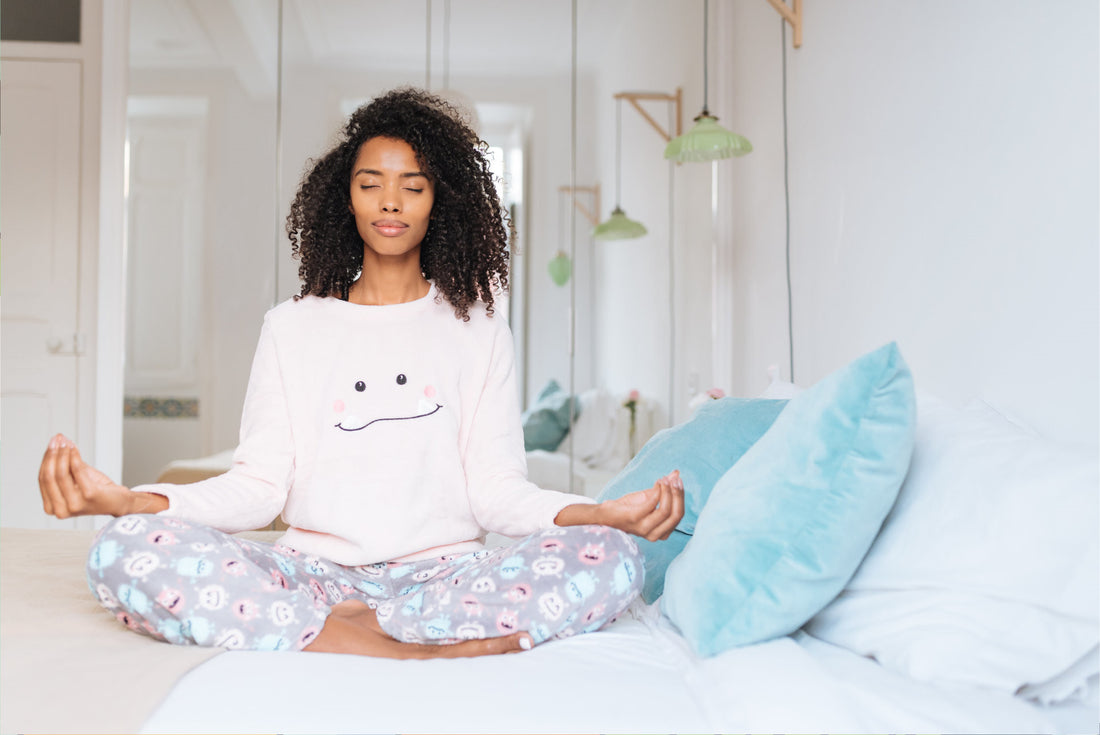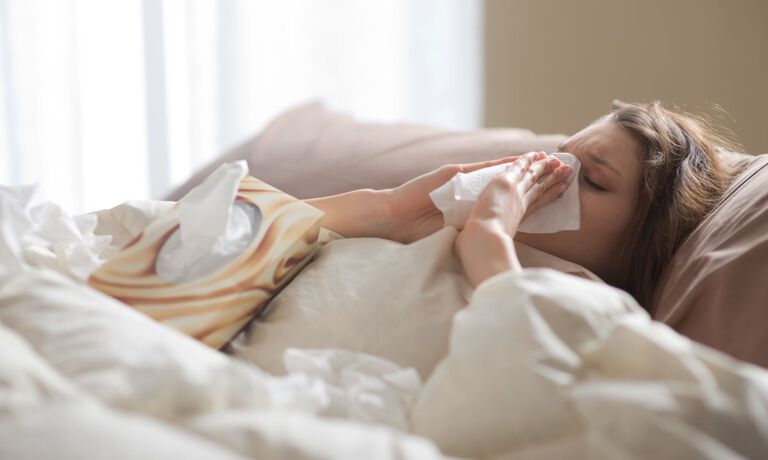News
Sleep Apnea and Seasonal Allergies
Are you suffering from seasonal allergies? You are not alone. Many people have to deal with the unpleasantness of allergy symptoms in the early spring, which can interfere with your ability to get a good night’s sleep. Allergies can be even worse for people who suffer from sleep apnea, since your airway is already compromised during sleep. A lot of allergy symptoms tend to worsen and cause nasal congestion, which can dry your mouth out or block your airway. Not a good thing with sleep apnea, especially if you use a CPAP machine to help you sleep at night. Luckily there are a few things you can do to help give some relief to your symptoms so you can sleep better at night. Here are a few tips: Take advantage of humidification: As great as the CPAP is for helping you sleep, it can also dry out your nasal passages, which can be extremely uncomfortable and worsen your allergy symptoms. Using a humidifier with your CPAP can help to keep your airway moist enough to promote proper breathing during sleep. Keep your CPAP mask in great condition: Make sure you are cleaning your CPAP mask and other parts on a regular basis. Sleeping in a dirty mask will only spread bacteria and germs through your airway as you sleep and make your allergies worse. Also, if your CPAP has a filter, make sure that it is changed on a regular basis as well. Take some medications to help relieve your symptoms: Taking an over-the-counter antihistamine before bed can help to alleviate allergy symptoms and help you sleep better at night. But if you are using CPAP therapy to sleep, make sure you clear this with your doctor first. Be mindful of your sleeping environment: If the pollen outside is particularly strong and bothering your allergies, don’t sleep with your windows open as this will only make your symptoms worse. Keep your windows closed at night and keep your bedding fresh and clean will help as well.
about Sleep Apnea and Seasonal AllergiesSleep and Pregnancy
wp:paragraph So you are expecting a little one! This can be both an exciting and overwhelming time with many changes happening to your body. One thing that many pregnant women notice is the numerous changes in sleep habits. Considering your body is growing a baby, this is to be expected. Sleep is most definitely not something you should sacrifice at this time as it is essential both for you and your growing baby! /wp:paragraph wp:paragraph Here are a few ways in which your sleep changes when you are pregnant; /wp:paragraph wp:paragraph Increased daytime fatigue: This is one of the most common symptoms! Many pregnant women find themselves exhausted and overly tired thanks to changing hormones. This can improve once you hit the second trimester but sticking to a consistent sleep cycle will help with this. /wp:paragraph wp:paragraph Insomnia: There are many reasons for insomnia in pregnant women, but anxiety is one of the most common thanks to all the unknowns between the labour and delivery as well as the anxiety of impending motherhood. Finding ways to deal with your anxiety (such as journaling or meditation) is important in helping with this. /wp:paragraph wp:paragraph Heartburn: Again, very common in pregnant women but this can keep you up at night. To help with this, avoid eating spicy foods, especially late at night. /wp:paragraph wp:paragraph Frequent bathroom trips: With a baby pushing down on your bladder, frequent bathroom trips in the night can often be unavoidable. Keeping hydrated is very important but try not to drink a ton of water before bedtime to help minimize this. /wp:paragraph wp:paragraph Difficulty getting comfortable: As your body grows and develops, you may find that the sleep positions you are used to are no longer working, and you may find yourself tossing and turning a lot. Sleeping on your side (especially on the left) is most recommended for pregnant women and using pillows to support your stomach and/or between your knees should help you get a little more comfortable. /wp:paragraph wp:paragraph Nausea: Although nausea occurs more often in the morning, it can still occasionally strike at night. Try keeping a few plain crackers on hand to help settle your stomach if need be. /wp:paragraph wp:paragraph Be sure to speak to your doctor if you are having difficulty getting a good night’s sleep. And if you need to take a short daytime nap or sleep a little bit longer, make sure you listen to your body! /wp:paragraph wp:paragraph Contact us for more information. /wp:paragraph
about Sleep and PregnancyHow sugar affects your sleep
wp:paragraph If you just overindulged in some of the delicious Easter chocolate and desserts, take note! We all know how sugar is bad for you, but did you know that too much sugar can have a negative effect on your sleep? /wp:paragraph wp:paragraph Despite this, many of us simply cannot live without some form of sugar, whether you have it in your coffee, a mid-afternoon pick me up or if you like to have something sweet before bedtime. Ever had the “sugar crash” where you feel sleepy after eating too many sweets? This is not so good for sleeping as this can not only cause insomnia but poor sleep quality in general. Sugar is known to give you a temporary boost of energy, followed by feelings of sleepiness. /wp:paragraph wp:paragraph Here are three ways to prevent sugar from interfering with your sleep: /wp:paragraph wp:paragraph Consuming too many sweets before bed? Not a good idea: Although sugar may make you feel sleepy, it should NOT be used as a sleep aid as this will mess with your sleep cycle and cause you to feel groggy the next day. If you need to have a snack before bed, consider a piece of fruit to combat your sweets cravings. Warm milk or herbal tea before bed can also be a good idea. /wp:paragraph wp:paragraph Don’t forget to maintain a healthy diet: Eating a balanced diet, which includes all the necessary vitamins and nutrients, will help you to maintain a regular sleep cycle, in addition to staying hydrated, getting in some physical activity, and starting your day with a proper nutritious breakfast. /wp:paragraph wp:paragraph Enjoy your favorite sweets in moderation: Let’s face it, cutting out sweets is harder than it looks, and simply unrealistic for many people. There is nothing wrong with enjoying your favorite dessert every now and then, just be smart about it! Stick to smaller portions of your favorites and consider some sugar-free alternatives. /wp:paragraph wp:paragraph Contact us for more information. /wp:paragraph
about How sugar affects your sleepWhat is Post Covid-19 Fatigue?
wp:paragraph If you have ever tested positive for Covid-19 and you have found yourself feeling a lot more tired than normal afterwards, you are not alone. /wp:paragraph wp:paragraph One of the many side effects of a Covid-19 infection, that has been known to affect many people is extreme fatigue. And unlike normal fatigue or daytime tiredness, this does not necessarily get better with lots of rest and can inhibit your day-to-day activities. As frustrating as this may seem, this is part of the body’s immune response to the virus for many people. Rest assured, it will get better, but it will take some time and it won’t happen overnight. /wp:paragraph wp:paragraph Here are a few tips to help you deal with the effects of post Covid-19 fatigue: /wp:paragraph wp:paragraph Pace yourself: It will take some time for your energy levels to return to what they were before you were sick. Listen to your body and adjust your return to normal activities based on your energy level and take a break if you need to. Try to prioritize things based on what you can and cannot do. /wp:paragraph wp:paragraph Gradually return to physical activity: You may not necessarily be able to run a marathon or participate in sports if you are dealing with Covid fatigue. If you live a physically active lifestyle, you will need to take your time to ease back into exercise, doing so too quickly could make it worse and prolong your recovery. Start with shorter walks and work up from there. /wp:paragraph wp:paragraph Get lots of sleep: Although you may already be sleeping more than you normally do, this will help your body to conserve energy and will enable you to take it slow with your recovery. Sticking to a solid and consistent bedtime routine will help with this. /wp:paragraph wp:paragraph Maintain a healthy diet: Although this may be difficult if you are dealing with a loss of taste and smell, nourishing your body with the proper vitamins and nutrients will be important in the healing process. Make sure you fuel your body with lots of healthy foods to aid with your recovery. /wp:paragraph wp:paragraph Contact us for more information. /wp:paragraph
about What is Post Covid-19 Fatigue?The Link Between Sleep and Self-care
wp:paragraph The idea of self-care has gained a ton of popularity in recent years and has been great for people to prioritize their overall health and wellness in many ways. Self-care is different for everyone, whether through a relaxing bubble bath, reading your favourite book, binge-watching your favourite TV show, eating a delicious healthy meal. /wp:paragraph wp:paragraph Do you include sleep as a part of your self-care routine? Sleep is indeed one of the most important forms of self-care, as it has so many benefits that include boosting your immune system, improving your mood and helping with your heart function, just to name a few. Here are a few tips for incorporating sleep into your self care routine /wp:paragraph wp:list wp:list-item Build a solid sleep routine: Our internal clocks thrive on routine for proper sleep and a good routine will help you to take the time to properly wind down before bedtime and sleep better. Everyone’s routine will be different based on your individual needs, preferences and daily schedule but try to keep it consistent and realistic for you. /wp:list-item /wp:list wp:list wp:list-item Create a relaxing sleep environment: The bedroom is meant to be a place that will promote relaxation and calmness. If your sleeping environment causes you stress or anxiety in any way, then this will have an overall negative effect on your sleep. A few ways to help with this include keeping your bedroom dark, diffusing some relaxing essential oils and keeping the temperature on the cooler side. /wp:list-item /wp:list wp:list wp:list-item Limit technology: Many people like to spend time on their electronic devices before bedtime but avoid doing this! Not only can this cause unnecessary anxiety, but the light on your devices can interfere with your sleep cycle and potentially lead to insomnia and daytime fatigue. Try to power off all your devices at least a half hour before bedtime and find another activity that will help you wind down before bedtime, such as yoga or reading. /wp:list-item /wp:list wp:list wp:list-item Practice healthy daytime habits: Maintaining healthy diet and exercise habits are essential to a good night’s sleep, however there are a few extra things you can do to improve your sleep beyond that. Try and limit daytime naps and avoid all forms of caffeine at least 6-8 hours before bedtime. Also limit alcohol and other recreational drugs before bedtime such as tobacco and cannabis that have been known to interfere negatively with your sleep cycle. /wp:list-item /wp:list wp:paragraph Contact us for more information. /wp:paragraph
about The Link Between Sleep and Self-careSleep and Heart Health
wp:paragraph February is heart month in Canada, which brings awareness to the importance of cardiovascular health. For many people, good heart health includes eating well and exercising, but it is important to know that sleep also has a large role to play in a healthy heart too. /wp:paragraph wp:paragraph Heart disease affects millions of Canadians each year, however, many cardiovascular diseases can be prevented by adopting some healthy habits, which includes sleep. /wp:paragraph wp:paragraph The relationship between sleep and your heart /wp:paragraph wp:paragraph Good sleep is essential to your overall well-being as it gives your body a chance to rest and recharge so that you can function well in the daytime. If you are not getting enough restful sleep on a regular basis, this can lead to many health problems including weight gain, diabetes, stroke, and high blood pressure, just to name a few. All of these can lead to heart problems if they are not treated. /wp:paragraph wp:paragraph In addition, anxiety, depression, and stress, all of which can affect your sleep, have been known to increase the risk of cardiovascular diseases if left untreated. For this reason, it is important to try to reduce stress, and seek medical help for any untreated mental health disorders. /wp:paragraph wp:paragraph Tips to improve your sleep, and your heart /wp:paragraph wp:paragraph Make sure you get at least 8-10 hours of sleep per night and that you stay consistent in the time you go to bed and wake up each day. Practice good sleep hygiene and maintain healthy diet and exercise habits. All these together will improve the health of your heart and reduce your risk of developing cardiovascular diseases. /wp:paragraph wp:paragraph It is also important to note that many sleep disorders, including sleep apnea, can lead to serious heart problems if they are left untreated. Be sure to speak to your doctor if you are experiencing any sleep problems that you are not able to resolve on your own. /wp:paragraph
about Sleep and Heart HealthSleep Tips for the Holidays
wp:paragraph The holiday season can be such a wonderful time of year, but it can also be very disruptive to your sleep schedule in a number of ways. Don’t let the lack of sleep turn you into a grinch! Here are a few ways in which your sleep can be disrupted over the holidays, and how to fix it. /wp:paragraph wp:paragraph Being too busy: yes, the holidays are a busy time between parties, gatherings, shopping, and more. This can make you feel overwhelmed and in turn, can affect your sleep if you are feeling anxious about everything you have to do. Take some time to slow down. Prep in advance as much as you can so you don’t feel as overwhelmed and try not to take on more than you can handle. /wp:paragraph wp:paragraph Eating habits: it’s natural to want to indulge in some of your favorite foods at this time of year, it’s just too irresistible! But be careful, going to bed when you feel too bloated can disrupt your sleep and cause insomnia, not to mention it can be very uncomfortable. Pace yourself at the dinner table and stop eating when you feel full. /wp:paragraph wp:paragraph Drinking too much: whether you are gathering with loved ones or just enjoying a quiet night at home where you don’t have to work the next day, many people tend to go overboard drinking during the holidays. Drinking too much alcohol before bedtime can disrupt your REM sleep, making for a very restless night. An extra drink or two is usually okay but don’t go too crazy, and be sure to stay hydrated. /wp:paragraph wp:paragraph Not enough exercise: while it may seem too easy to just sit on the couch watching your favorite Christmas movies, be sure to get up and get in some physical activity. Try to go for a walk at least once a day or take this time to partake in your favorite outdoor winter activity. It can also be a great family bonding opportunity. /wp:paragraph wp:paragraph Sleeping in and staying up late: yes, late nights happen, and if you stay up late then you may find yourself sleeping in as a result, especially if you know you don’t have to work the next day. Slip-ups happen and that’s okay! Just make sure you don’t deviate too much from your routine and you get back on track the next day. /wp:paragraph
about Sleep Tips for the HolidaysTips for Sleeping When You Have a Cold
wp:paragraph The dreaded cold and flu season is upon us, and chances are, you may be affected by a cold or flu at some point, no matter how vigilant you are at washing your hands and disinfecting the area around you. Many cold and flu symptoms also tend to make sleeping incredibly uncomfortable, which is the last thing you want to be able to fight it off. Here are a few tips for getting a good sleep when you have a cold. /wp:paragraph wp:paragraph Get lots of rest: you may have heard this many times already but giving your body a chance to rest is truly the best medicine for fighting off colds. Going to bed a little earlier and waking up a little later than normal is okay. You may also consider a mid-day nap as well. Lounging on the couch and binge-watching your favourite show is okay too, but don’t overdo it. /wp:paragraph wp:paragraph Take over-the-counter cold medicines: be sure to keep some Advil or Tylenol on hand to help you sleep better, especially ones geared towards alleviating cold and flu symptoms. There are lots of cold & flu medicines available for “nighttime” use that will help you sleep, but be sure to read the labels carefully and don’t take more than the recommended dosage. /wp:paragraph wp:paragraph Keep the room humidified: the cold air outside can dry out the air in your bedroom, which has a counter-intuitive effect on alleviating cold symptoms. Using a humidifier to help moisten the air will help you sleep better. /wp:paragraph wp:paragraph Stay hydrated: your body will need lots of liquids to help fight your cold off. Drink lots of water, and herbal tea with honey is especially beneficial. As a bonus, add a small slice of lemon. Avoid caffeine and alcohol as they will both leave you dehydrated. /wp:paragraph wp:paragraph Alleviate any sinus discomfort: Blocked sinuses are common when you have a cold, and this can make sleeping very uncomfortable when you can’t breathe properly. Try propping your head up slightly with a pillow to help you breathe a bit easier. /wp:paragraph wp:paragraph Take a hot shower or bath: the heat from doing either of these things will help to relax your muscles and reduce your cold symptoms before bed. /wp:paragraph wp:paragraph Contact us for more information. /wp:paragraph
about Tips for Sleeping When You Have a ColdThe Connection Between Sleep Apnea and Genetics
wp:paragraph If you have someone in your family who has been diagnosed with sleep apnea, it may be natural to wonder if you will develop sleep apnea too. /wp:paragraph wp:paragraph There has been a lot of research done over the years that looks at the connection between sleep apnea and genetics. While sleep apnea can run in the family, it is not necessarily known to be a condition that is genetic. There are, however, many risk factors of sleep apnea that do involve genetics. Here are a few of them: /wp:paragraph wp:paragraph Gender: sleep apnea is generally more common in males than females, but gender alone doesn’t always lead to a sleep apnea diagnosis, there are usually other factors involved. /wp:paragraph wp:paragraph Lifestyle: certain lifestyle factors can be genetic and may lead to a sleep apnea diagnosis, such as excessive drinking and smoking, especially close to bedtime. Both of these things have been known to not only be genetic but also lead to a sleep apnea diagnosis. /wp:paragraph wp:paragraph The shape of your jaw or airway: this is usually a big risk factor in diagnosing sleep apnea, especially with certain features such as a larger tongue, large tonsils, overbite, or any other facial structure that risks crowding the space at the back of your throat. Facial structures like this are usually hereditary and tend to look the same from generation to generation. /wp:paragraph wp:paragraph Body type: individuals who are overweight or obese have a greater risk of being diagnosed with sleep apnea. Body fat distribution tends to be genetic most of the time, and a lot of genetic lifestyle factors and body structures can lead to a larger body type, which in turn can increase the risk of developing sleep apnea. /wp:paragraph wp:paragraph Pre-existing health conditions: there are many genetic health conditions that can be a huge risk factor in a sleep apnea diagnosis. Some of these include heart disease, stroke, high blood pressure and type 2 diabetes. /wp:paragraph wp:paragraph Contact us for more information. /wp:paragraph
about The Connection Between Sleep Apnea and Genetics